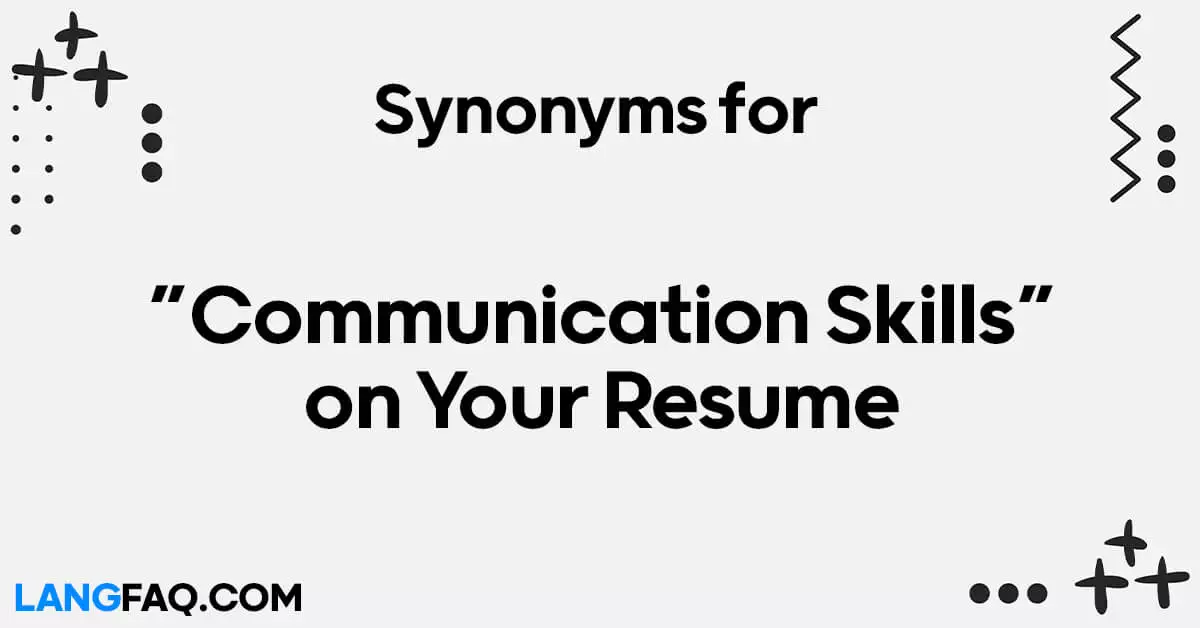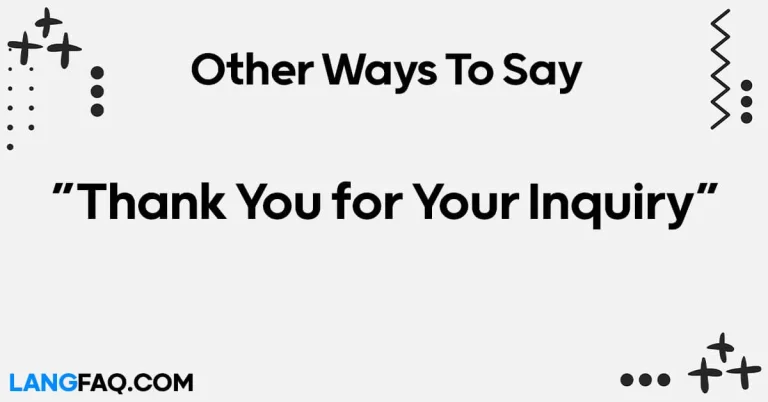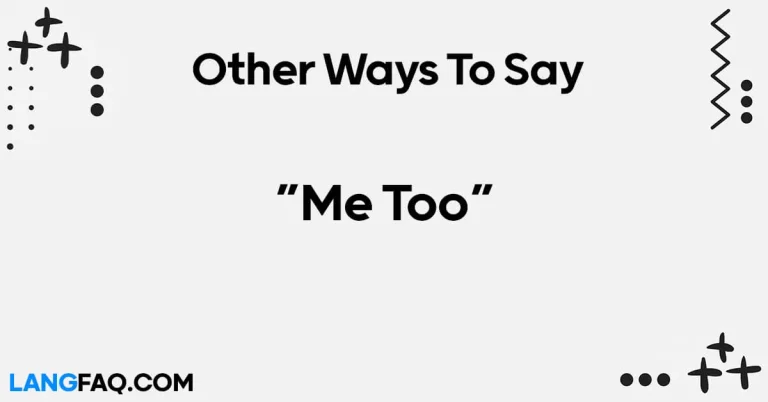Hey there, job seekers and resume perfectionists! Ever felt like your resume could use a dash of pizzazz? Well, you’re in for a treat because today, we’re diving headfirst into the world of “Synonyms for ‘Communication Skills’ on Your Resume”.
Yep, you heard it right. We’re spicing up your CV game with a linguistic feast that’ll make you the talk of the hiring town. From “Verbal Proficiency” to “Social Communication Expertise,” we’ve got your back.
Stick around, and we’ll show you how to leave recruiters absolutely spellbound by your way with words. Ready? Let’s get wordy! 📝💬
In this article, we’ll cover:
- Why synonyms are your secret weapon.
- How to tailor your resume like a pro.
- Examples that prove your communication prowess.
- Action verbs that pack a punch.
- How to leave an unforgettable impression on potential employers.
You’ve heard it a thousand times: communication skills are crucial on your resume. But here’s the kicker – everyone knows it! So, how do you make your resume stand out from the sea of “excellent communication skills” claims? The answer lies in diversifying your vocabulary.
In this blog post, we’ll explore why it’s essential to go beyond the generic and delve into a list of synonyms for “Communication Skills” on Your Resume that will impress any potential employer. Let’s dive in!
The Importance of Communication Skills on a Resume
Imagine this scenario: you’re the hiring manager for a coveted job opening. You’ve got a stack of resumes on your desk, and they all claim to have “strong communication skills.”
Now, as a savvy recruiter, you understand the significance of effective communication in the workplace. But here’s the catch – vague claims don’t tell you much about a candidate’s actual abilities.
Evidence-Based Insight: According to a survey conducted by the National Association of Colleges and Employers (NACE), communication skills consistently rank among the top five skills employers seek in candidates. Employers value communication skills because they are crucial for teamwork, problem-solving, and overall workplace success.
So, if you want to capture the attention of recruiters and hiring managers, you need to provide more than just a generic statement. You need to showcase your communication prowess using words that pop off the page and make an impact.
The Need for Diverse Synonyms
Now, you might be thinking, “But why do I need synonyms? Isn’t ‘communication skills’ good enough?” Well, think of it this way – using synonyms on your resume is like adding a splash of color to a black-and-white photo. It grabs attention, adds depth, and conveys a richer message.
Expert Tip: Google’s algorithm rewards content that uses synonyms and related keywords naturally. So, by incorporating diverse synonyms, you’re not only impressing humans but also the search engines.
Diversity in your vocabulary demonstrates your ability to adapt to different situations and audiences. It shows that you don’t just communicate; you excel at it. Let’s explore a list of synonyms for “Communication Skills” on Your Resume that will help you achieve just that.
In the upcoming sections, we’ll unveil these synonyms one by one and provide tips on how to use them effectively on your resume. Get ready to transform your bland resume into a masterpiece that speaks volumes about your communication prowess!
List of Synonyms for “Communication Skills” on Your Resume
Alright, let’s get to the good stuff – the juicy synonyms that will transform your resume from ho-hum to impressive. Buckle up, because we’re about to embark on a journey through the world of communication expertise!
Verbal Proficiency
What it means: Being a wordsmith, your ability to articulate ideas and information verbally is top-notch.
Why it matters: Verbal proficiency demonstrates your capacity to convey complex concepts with ease.
Interpersonal Prowess
What it means: You’re a people person, skilled at building connections and relationships.
Why it matters: In today’s collaborative workplaces, interpersonal prowess is invaluable for team dynamics.
Conversational Aptitude
What it means: You’re a master of meaningful dialogue, turning conversations into opportunities.
Why it matters: Conversational aptitude helps foster understanding and resolve issues effectively.
Social Communication Expertise
What it means: You excel in social settings, effortlessly adapting your communication style.
Why it matters: Social communication expertise is key in diverse workplaces where interaction styles vary.
Effective Dialogue Competence
What it means: You know how to engage in constructive, outcome-oriented discussions.
Why it matters: Effective dialogue competence drives productive communication, essential for problem-solving.
Eloquence Mastery
What it means: Your words flow gracefully, leaving a lasting impression on those who listen.
Why it matters: Eloquence mastery enhances your ability to influence and persuade.
Connection Building Skills
What it means: You’re adept at forging meaningful connections with colleagues and clients.
Why it matters: Connection building skills are essential for networking and building professional relationships.
Interaction Proficiency
What it means: Your interactions with others are seamless and impactful.
Why it matters: Interaction proficiency is vital for effective collaboration and teamwork.
Expressive Abilities
What it means: You can convey ideas and emotions effectively through your words.
Why it matters: Expressive abilities contribute to clear and engaging communication.
Articulation Competency
What it means: You’re a pro at expressing ideas with precision and clarity.
Why it matters: Articulation competency ensures your messages are understood accurately.
Dialogic Proficiency
What it means: You excel in two-way communication, fostering meaningful dialogues.
Why it matters: Dialogic proficiency is crucial for open and constructive discussions.
Persuasive Communication Talent
What it means: You have the knack for convincing others and gaining their buy-in.
Why it matters: Persuasive communication talent is a valuable asset in negotiations and sales roles.
Collaborative Discourse Skills
What it means: You thrive in collaborative discussions, contributing positively to team goals.
Why it matters: Collaborative discourse skills are essential for group decision-making and problem-solving.
Information Exchange Mastery
What it means: You’re skilled at sharing information efficiently and effectively.
Why it matters: Information exchange mastery streamlines communication within organizations.
Speech Fluency Proficiency
What it means: Your spoken words flow smoothly, making you an engaging communicator.
Why it matters: Speech fluency proficiency captivates listeners and holds their attention.
Negotiation Communication Aptitude
What it means: You’re a negotiation pro, using communication to reach mutually beneficial agreements.
Why it matters: Negotiation communication aptitude is essential in roles that involve deal-making and conflict resolution.
Now that you’ve got this treasure trove of synonyms at your disposal, it’s time to sprinkle them strategically throughout your resume. Remember, it’s not just about the words you use but also how you showcase your skills through real-life examples and achievements. So go ahead, revamp your resume, and let your communication expertise shine!
How to Incorporate These Synonyms on Your Resume
Congratulations! You’ve got a treasure trove of synonyms for “Communication Skills” at your fingertips. But how do you go about weaving these linguistic gems into your resume to make it truly shine? Fear not, we’ve got you covered with some clever strategies that will set your resume apart.
Tailoring Your Resume to the Job Description
Why it matters: Tailoring your resume to match the specific job you’re applying for is like dressing for success – it shows you’ve put in the effort and attention to detail.
Expert Tip: Did you know that 61% of recruiters automatically dismiss resumes that don’t align with the job posting? Tailoring your resume can make or break your chances!
How to do it:
- Review the job description thoroughly to identify the key skills and qualifications required.
- Match your synonyms to the skills mentioned. For example, if the job requires “Interpersonal skills,” replace it with “Interpersonal Prowess.”
- Showcase your expertise by providing concrete examples of how you’ve demonstrated these skills in your previous roles.
Example: If the job listing emphasizes “Effective Dialogue Competence,” you could include a bullet point like: “Led team meetings, fostering productive discussions that resulted in a 20% increase in project efficiency.”
Providing Specific Examples
Why it matters: Anyone can claim to have communication skills, but providing real-life examples proves it.
Expert Tip: According to a study by the Society for Human Resource Management (SHRM), 83% of HR professionals consider specific examples of accomplishments to be the most influential factor in a resume.
How to do it:
- Instead of just listing synonyms, pair them with specific achievements or experiences.
- Use the STAR method (Situation, Task, Action, Result) to structure your examples. Describe the situation or problem, your role, the actions you took, and the positive outcomes.
Example: Under “Persuasive Communication Talent,” you could write: “Crafted compelling client presentations that secured $50,000 in new contracts within three months.”
Using Action Verbs
Why it matters: Action verbs inject energy and impact into your resume. They make your achievements pop and capture the reader’s attention.
Expert Tip: Research by LinkedIn shows that using action verbs makes your profile 7 times more likely to be viewed by others.
How to do it:
- Start each bullet point with a powerful action verb that corresponds to the synonym you’re using.
- Avoid passive language and generic phrases. Instead of saying “Responsible for,” opt for dynamic verbs like “Achieved,” “Initiated,” or “Collaborated.”
Example: For “Connection Building Skills,” you could lead with: “Cultivated a robust professional network, resulting in a 30% increase in client referrals.”
Incorporating these synonyms strategically, along with specific examples and action verbs, will not only make your resume more engaging but also demonstrate your expertise in a way that truly stands out to potential employers. So, go ahead, infuse your resume with the power of these synonyms and watch your job prospects skyrocket!
Are “Communication Skills” Soft Skills?
Yes, “Communication Skills” are indeed considered soft skills. Soft skills encompass interpersonal skills, communication abilities, and traits that relate to how well you work with others and navigate social situations. Effective communication is a fundamental soft skill that plays a crucial role in personal and professional success.
Conclusion
Alright, my fellow communication connoisseur, you’ve made it to the end of our journey through the world of synonyms for “Communication Skills” on your resume. It’s time for a quick recap and some parting words of wisdom.
Recap of the Synonyms and Their Importance
Throughout this adventure, we’ve explored a treasure trove of synonyms that can elevate your resume to new heights:
- Verbal Proficiency: Showcasing your ability to articulate ideas clearly.
- Interpersonal Prowess: Proving your knack for building connections.
- Conversational Aptitude: Highlighting your skill in meaningful dialogues.
- Social Communication Expertise: Demonstrating adaptability in social settings.
- Effective Dialogue Competence: Displaying your capacity for productive discussions.
- Eloquence Mastery: Making your words flow gracefully and persuasively.
- Connection Building Skills: Illustrating your ability to forge meaningful connections.
- Interaction Proficiency: Showcasing your seamless and impactful interactions.
- Expressive Abilities: Conveying ideas and emotions effectively.
- Articulation Competency: Expressing ideas with precision and clarity.
- Dialogic Proficiency: Excelling in two-way communication and open discussions.
- Persuasive Communication Talent: Proving your ability to convince and influence.
- Collaborative Discourse Skills: Thriving in collaborative discussions.
- Information Exchange Mastery: Excelling in sharing information efficiently.
- Speech Fluency Proficiency: Captivating listeners with smooth, engaging speech.
- Negotiation Communication Aptitude: Mastering communication in negotiations and conflict resolution.
These synonyms go beyond the mundane and show potential employers that you’re not just another cookie-cutter candidate. You’re a communication virtuoso, ready to take on any challenge that comes your way.
Enhance Resume Communication Skills
Now, armed with these synonyms and the knowledge of how to incorporate them effectively, it’s time to roll up your sleeves and enhance your resume’s communication skills. Don’t hold back – let your personality shine through your words. Share your accomplishments and experiences that demonstrate your expertise.
Remember, your resume is your ticket to that dream job, and by infusing it with the power of these synonyms, you’re well on your way to leaving a lasting impression on recruiters and hiring managers.
So, what are you waiting for? Go ahead and give your resume the makeover it deserves. Unleash your communication prowess, and watch as doors of opportunity swing open before you. Your future career success is just a few well-chosen words away. Good luck!
FAQ
What are the benefits of using synonyms for “Communication Skills” on my resume?
Using synonyms adds depth and specificity to your resume, making it more appealing to employers who value effective communication.
Should I use all the synonyms mentioned on my resume?
It’s not necessary to use all of them. Choose the ones that best reflect your strengths and align with the job you’re applying for.
Can I include both the synonym and the original term on my resume?
Absolutely! Using both can help ATS systems recognize your skills while still showcasing your vocabulary diversity to human readers.
How do I know which synonyms to use for my specific job application?
Review the job description and select synonyms that closely match the skills and qualifications required by the employer.
Are there any synonyms that work better for specific industries or roles?
Some synonyms may be more suitable for certain industries or roles. Research the expectations of your target job to choose wisely.







